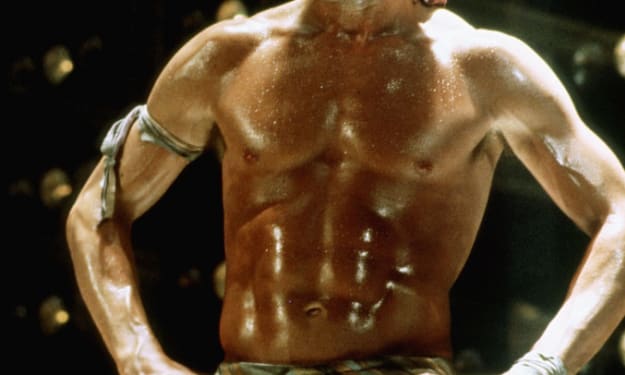Movie Review: I Called Him Morgan
This jazzy tale of trumpeter Lee Morgan and his wife/caretaker/killer, Helen, is heavy on hard bop, hard drugs, and heartbreak.

Rock ’n’ roll makes a pretty flashy claim on the title when it comes to live-fast, die-young stars, to the point that they’re sortable by age, with 27 alone accounting for the losses of Jimi, Jim, Janis, and Kurt. But the more sublime world of jazz has its own tabloid-worthy roster of geniuses taken before their time. Seminal jazz age cornetist and Louis Armstrong contemporary Bix Beiderbecke drank himself to death at 28 in 1931. Charlie Parker dragged his heroin habit across his 15-year career before succumbing in 1955 at 34 (a coroner took a look at his corpse and adjudged it to be closer to 60). Clean-living hard-bop trumpeter Clifford Brown, who had already laid claim to being one of the all-time greats, died a year later in a car accident at the tender age of 25.
That same year, Lee Morgan arrived in New York from Philly, a sweet-faced trumpet prodigy at the ripe old age of 16, and quickly landed the plummest of gigs in the jazz world: the Dizzie Gillespie Big Band, Art Blakey and the Jazz Messengers. He went on to record prolifically … until his untimely death in 1972 at the age of 33, from a gunshot wound inflicted by his common-law wife, Helen, on a blizzarding winter night at an East Village jazz club called Slug’s.
Of course, those last, salacious details are the hook to sell a documentary about a jazz trumpeter in an age of diminished interest in the art form.
But I Called Him Morgan is anything but salacious. Director Kasper Collin presents his story in an understated, almost austere manner, interviewing Morgan contemporaries and bandmates, including saxophonist Wayne Shorter, drummer Albert “Tootie” Heath, and bassist Paul West, over an exquisite soundtrack of Lee Morgan’s catalogue.
The film is not a deep dive into the life, career, or foibles of the great trumpeter. As the “I” of the title suggests, I Called Him Morgan is as much, or more, the story of Helen Morgan. And the story is told by Helen herself, via a scratchy cassette tape interview recorded by a jazz DJ and historian named Larry Reni Thomas in 1996, shortly before Helen died. (How he found Helen is a Hollywood-worthy story, and I won’t give up the spoiler here.)
Helen’s narrative is so grounded and folksy, you have to remind yourself from time to time that she’s the one who shot Lee dead in a smoky club. A native of rural North Carolina, she moved to New York as a young woman and became something of a jazz matron, hosting parties and cooking for musicians and other bohemians. It’s in this capacity that she first came across Lee, strung-out and coatless in the dead of winter, having fallen into the habit of pawning his valuables for smack.
The movie doesn’t give too many gory details about Lee’s heroin addiction, letting a few photos provide a glimpse, including one of Lee with his head wrapped after a drug-related mishap; Wayne shorter looks in the photo with a mix of worry and disgust. In another photo, Lee, probably still in his early 20s, looks desperate, old, almost unrecognizably ragged. But by all accounts, Helen nursed Lee back from the gutter, got him cleaned up, and made it possible to resume his brilliant career.
It is for this reason that most of the interviewees, including musicians onstage that fateful night at Slug’s, were able to temper their anger toward Helen, whose rash action was precipitated by Lee’s dalliance with another woman, Judith Johnson — also interviewed here — who looked to this viewer hauntingly like Helen. The fatal love triangle, ironically, is less about fiery passion than it is about two nurturing women vying to be the primary companion/caretaker of a troubled and immensely gifted man-child.
Ultimately you walk away from this subtly powerful film wishing for everyone’s sake, including Helen’s, that that night at Slug’s hadn’t been terminal. (The snowstorm prevented the ambulance from reaching the club for an hour, as Lee bled.) But that’s life. That’s jazz.
On the plus side is all that Lee Morgan left behind. Brilliant hard bop with an exuberant, joyful groove. His composition “The Sidewinder,” for starters. “Moanin’” with the Jazz Messengers. Hell, did you know teenage Lee is the trumpeter on Coltrane’s landmark Blue Trane album?
Hopefully, I Called Him Morgan will spark new interest in Lee Morgan the way Bruce Weber’s Let’s Get Lost renewed the popularity of trumpeter and Morgan contemporary Chet Baker.
I Called Him Morgan is out now in limited release. If it’s not playing in your town now, maybe it will turn up in your local art house soon.
Lee and Helen






Comments
There are no comments for this story
Be the first to respond and start the conversation.